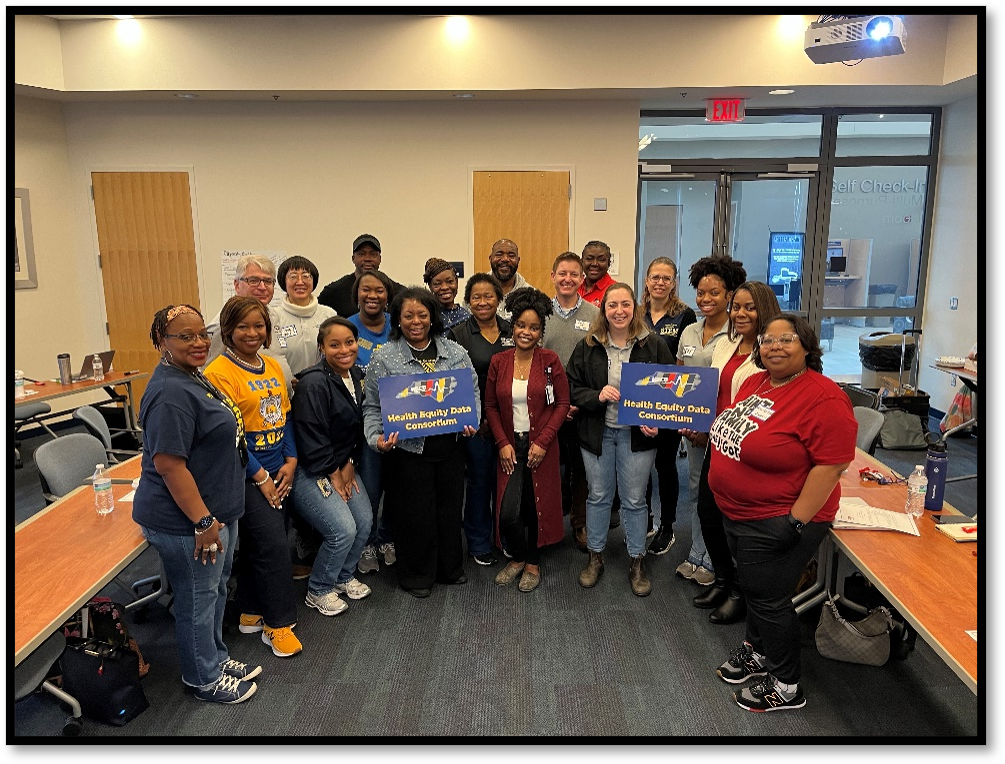Project Overview
The Historically Black Colleges and Universities (HBCU) Health Equity Data Consortium (HEDC) is a strategic collaboration of 10 HBCU and Minority Serving Institutions (MSI) across North Carolina working to address health disparities among underserved communities in our state.
From February 2023 to February 2024, the HBCU HEDC deployed the COVID-19 Impact Survey to address critical data gaps on the pandemic’s impact on households across NC. Our team at the North Carolina Institute for Public Health (NCIPH) provided technical assistance for survey methods, analysis, and dissemination.
Data Analysis Workgroup
Tasked with providing capacity building support for wrangling, analyzing, and visualizing survey results, I helped form a Data Analysis Workgroup composed of faculty and students from all 10 universities within the HBCU HEDC.
I’d be remiss not to mention some of the members of the workgroup: Dr. Scott Bradshaw (ECSU), Dr. Sabina Otienoburu (JCSU), Dr. Cynthia Williams Brown (WSSU), Dr. Martie Thompson (App State), Dr. Sherry Leviner (FSU), Melvin Jackson (Shaw/UNC-CH), Dr. Anderton-Georgie (Shaw), Dr. Dorothy C. Browne (Shaw), Dr. Nicole Diggs (NCCU), Dr. Irene Doherty (NCCU), Dr. Joe West (UNC Pembroke), Dr. Yiqing Yang (WCU), Dr. Ashley Sanderlin (NCAT), Dr. Miriam Wagner (NCAT), DeNita Murdock-Nash (NC SCHS), Dr. John Wallace (UNC-CH), and Jaquayla Hodges (UNC-CH). Shout-out to all of these amazing folks!

Leveraging Open-Source Tools
We wanted to choose a primary programming language for the analysis. Understandably, members of the workgroup had a variety of preferred, mostly licensed programming languages. I selected R as the primary language because it’s free, open-source, conducive to literate programming and research reproducibility, and there’s an unparalleled volume of self-learning resources.
Our team at NCIPH led R workshops, compiled relevant R resources, and developed shared code for transforming raw results, descriptive statistics, and univariate regression. The workgroup used R Markdown, Quarto, and Shiny to report results, ultimately using the output as a basis for coding and analysis decisions, exploratory analyses, and dissemination of findings to NC communities.
useR! Talk
In July 2024, I had the opportunity to give a talk about this work at the useR! conference in Salzburg, Austria. In addition to the content mentioned above, I discussed how convening a Data Analysis Workgroup and using free, open-source R packages and tools can serve as an engaging framework to bolster data science education and autonomy.
I encouraged fellow data scientists to:
Break out of the silo we too often find ourselves in by forming data workgroups tailored to project context
Demystify data science by meaningfully engaging folks throughout the data lifecycle
Promote data democratization by using free and open source tools (okay R!)